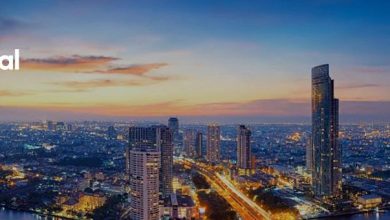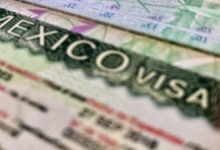Your Ultimate Guide: Making the Move to Thailand

Thailand. The very name conjures dreams of bustling Bangkok markets, serene northern temples, and pristine southern beaches. It’s a country that captures the imagination of millions, often leaving visitors with a profound desire to make that short holiday a longer, more permanent reality. If you’ve found yourself drawn to the “Land of Smiles” and are serious about making the leap, then this is your ultimate guide to making the Moving to Thailand.
Moving to a new country is an exciting, yet formidable undertaking. It involves more than just packing a suitcase; it requires careful planning, navigating bureaucracy, and embracing a new way of life. But with the right preparation, your transition to Thailand can be seamless, rewarding, and truly transformative.
1. The “Why” and “What” – Define Your Purpose
Before you even think about packing, clarify your reasons for moving and what kind of life you envision:
- Why Thailand? Is it for retirement, work, starting a business, study, or a lifestyle change? Your primary purpose will dictate your visa path.
- What’s Your Budget? Thailand offers a range of living costs, from budget-friendly to luxurious. Research average expenses in your desired location (e.g., Bangkok, Chiang Mai, Phuket) to ensure it aligns with your financial reality.
- Research Areas: Beyond the popular tourist spots, explore different regions or cities. Do you prefer a bustling city, a laid-back beach town, or a tranquil mountain retreat? Each offers a distinct expat experience.
2. The Visa – Your Golden Ticket
This is arguably the most critical step. You cannot simply arrive as a tourist and expect to stay long-term. Thailand offers various Non-Immigrant visa categories designed for extended stays.
- Non-Immigrant O-A (Retirement Visa): For those aged 50 and above. Requires proof of significant funds (e.g., 800,000 THB in a Thai bank account or 65,000 THB/month income).
- Non-Immigrant B (Business/Work Visa): For those working for a Thai company, starting a business, or teaching. Requires an invitation/sponsorship from a Thai entity. This is typically followed by obtaining a Work Permit.
- Non-Immigrant ED (Education Visa): For students enrolling in accredited Thai language schools, universities, or other long-term courses (e.g., Muay Thai).
- Non-Immigrant O (Dependent Visa): For those with Thai family (spouse, child) or as a dependent of a long-term visa holder.
- Thailand Privilege Card (Elite Visa): A premium option offering 5 to 20 years residency for a one-time membership fee, ideal for those valuing convenience and luxury.
Crucial Advice: Apply for your long-term visa before you move, usually at a Thai Embassy or Consulate in your home country or country of legal residence. Do NOT rely on tourist visas and hoping to change them; it’s often difficult or impossible.
3. Finances – Planning Your Thai Life
Beyond the visa’s financial requirements, a solid financial plan is paramount:
- Cost of Living: Research rental costs (apartments, houses), utility bills, food expenses (local vs. Western), transportation, and entertainment for your chosen area. Use online expat forums and cost-of-living websites.
- Banking: Once you have a long-term visa, you can typically open a Thai bank account. This simplifies daily transactions, but investigate international transfer fees from your home country.
- Taxes: This is complex. Understand your tax residency status in both your home country and Thailand. Thailand has territorial taxation (you pay tax on income sourced in or brought into Thailand). Seek professional international tax advice. Do not overlook this.
- Emergency Fund: Have ample savings to cover unforeseen circumstances, medical emergencies, or initial settling-in costs.
4. Healthcare – Prioritizing Your Well-being
Thailand has excellent, affordable healthcare, but navigating it is key:
- International Health Insurance: This is often a visa requirement, but even if not, it’s highly recommended. Ensure your policy covers you adequately in Thailand, including emergency evacuation.
- Local Hospitals/Clinics: Research reputable hospitals and clinics in your chosen area. Many cater to expats and offer English-speaking staff.
5. Accommodation – Finding Your Home
Decide on your initial and long-term accommodation strategy:
- Short-Term Stay: Book a hotel or short-term rental (Airbnb, serviced apartment) for your first few weeks while you look for a long-term place.
- Long-Term Rentals: Options range from modern condos in cities to traditional houses. Use reputable real estate agents (many speak English) or online portals. Leases are typically 6-12 months. Be aware of security deposits (usually 1-2 months’ rent).
- Ownership: Foreigners generally cannot own land in Thailand, but can own condominium units freehold.
6. Communication & Connectivity – Staying Connected
- SIM Card: Get a local SIM card immediately upon arrival. Major providers like AIS, TrueMove H, and Dtac offer affordable data packages.
- Internet: Reliable internet is widely available, especially in urban areas. Check providers when researching accommodation.
- Language: While English is spoken in tourist areas, learning basic Thai phrases will significantly enhance your daily life and integration. Consider language schools, which can also provide an ED visa.
7. Cultural Immersion & Daily Life – Embracing Your New Home
- Respect Local Customs: Thailand is a deeply Buddhist country with strong cultural norms. Learn about proper etiquette (e.g., respecting the monarchy, not touching heads, removing shoes indoors, dress codes for temples).
- Food: Embrace the incredible Thai cuisine! Explore local markets and street food, which are often safer and more delicious than tourist traps.
- Community: Seek out expat groups (online forums, social clubs) for advice and friendship. Also, make an effort to connect with locals; they are incredibly welcoming.
- Driving: If you plan to drive, you’ll need an international driving permit and eventually a Thai driving license. Be aware of local driving habits.
8. Packing & Moving Logistics – What to Bring
- Essentials First: Pack light for your initial arrival. Most things can be bought cheaply in Thailand.
- Important Documents: Keep your passport, visa, financial documents, insurance policies, and essential contacts in a secure, easily accessible bag. Have digital copies backed up.
- Medications: Bring a sufficient supply of any prescription medications with a doctor’s note.
- Shipping: For larger belongings, research international shipping companies. Be aware of customs duties.
The Ultimate Leap: Making it Happen
Making the move to Thailand is a bold step, but it’s an adventure that promises rich rewards. The warmth of its people, the beauty of its landscapes, and the vibrancy of its culture offer an unparalleled backdrop for a new chapter in your life. By carefully planning, understanding the visa landscape, and embracing the journey with an open mind, you can confidently turn your dream of long-term life in the Land of Smiles into a truly magnificent reality. Sawasdee!








